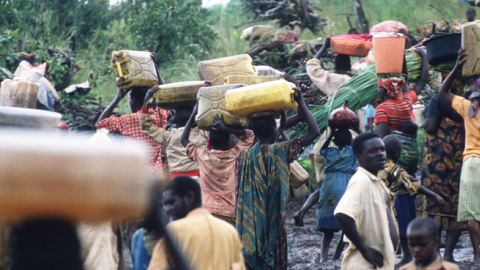April marks the 25th anniversary of the start of the Rwandan genocide, in which almost 800,000 Tutsis and moderate Hutus were indiscriminately set upon and murdered—in their homes, in schools, in churches and in the open air. Victims were often killed by machete, sometimes by neighbors they’d known for years.
Foreign governments, including the U.S., dithered while Rwandans died. The end of the genocide came only when the Rwandan Patriotic Front, led by Paul Kagame and supported by Uganda, marched into Rwanda, defeated the genocidal government forces, and drove the remaining loyalists into the bush.
Read the full article in the Wall Street Journal "here":https://www.wsj.com/articles/legacy-of-an-african-genocide-11554160620















